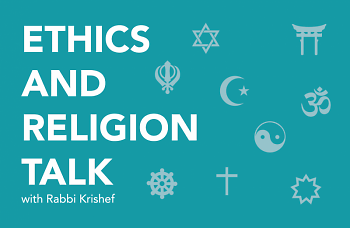Fred Stella, the Pracharak (Outreach Minister) for the West Michigan Hindu Temple, responds:
The sacred Hindu writ, the Vedas, say that when the Primal Unique (God) expanded from transcendence into the spacial-temporal universe. It produced ‘The Pair of Opposites.’ That is, everything had an equal, opposing force or quality. If we have light we have dark. Cold, heat. So if we have life we must have death. While we often look upon death as a punishment, it is also a release from the bonds of physical limitation. Ultimately, Hindus seek to move beyond the seemingly endless repetition of births and deaths.
Though the scriptures expound greatly on the subject of death, pious Hindus are encouraged not to give the subject too much thought. Nor are we to seek our own demise. But when it comes we should surrender to the process. There will most likely be mourning of family and friends, unless we were real jerks. This is normal and healthy. But the survivors must also learn acceptance and move on with their lives in the healing process.
Father Michael Nasser, who writes from an Eastern Christian perspective and is Pastor of St. Nicholas Orthodox Christian Church, responds:
Orthodox Christianity sees mortality as being the direct result of humanity’s sin. More a consequence than a punishment by God, we became mortal when we distanced ourselves from God by taking steps away from Him, which is how we see sin. As such, Jesus Christ becomes human--and therefore mortal--to join His divinity with humanity, specifically so that, as a man He can die, but as God, He breaks the power of death from within. Our principle Paschal (Easter) hymn declares that in His resurrection, Christ “trampled down death by death.”
Rev. Ray Lanning, a retired minister of the Reformed Presbyterian Church of North America, responds:
Mortality is subjection to the power of death (Latin: mors, mortis). The human body has been subjected to the power of death as a punishment for the sin of our first parents, who were warned by their Maker that if they disobeyed His law, they would die. In God’s mercy the execution of this death sentence was postponed in their case, as it is in ours, giving time and opportunity or “space” to repent and sue for mercy (Revelation 2:21). “By one man sin entered into the world, and death by sin; and so death passed upon all men, for that all have sinned” (Romans 5:12).
The human soul, the inward part or aspect of our humanity, is immortal or “undying.” It cannot be subjected to the power of death. Because it can and does bear the moral stain or guilt of sin, the soul can be punished by banishment from God’s presence, and being cast into the prison of hell. The soul in hell is in torment, ever dying, but never dead. So God says, “I have set before you life and death, blessing and cursing: therefore choose life, that both thou and thy seed may live” (Deuteronomy 30:19).
My response:
From a Biblical perspective, mortality comes from the actions of the first generation of humanity. Originally, Adam and Eve were permitted to eat from the tree of life, giving them immortality. However, after eating from the tree of knowledge of good and evil, they were no longer allowed to continue eating from the tree of life, because having both knowledge and immortality would make the human being too god-like. So banishment from the garden also mean mortality.
One could read Genesis as a story of human free will and the inevitable consequences of free will, namely sin and death. One could also read Genesis as a description of a child-like state of humanity and the inevitable release from the garden in order to allow humanity to grow up. Knowing that we have a limited life span is an essential ingredient of living lives where every moment counts.
Later rabbinic literature introduced the notion of the soul separate from the body; of a mortal, material body, created from the earth, and a typically immortal soul which has an independent existence both before and after being introduced to the body. The death of the body is part of the normal cycle of all living beings. The death of the soul is reserved only for those whose lifetimes were irredeemably evil.
Jewish theology believes that the messianic era will circle back to the beginning of Biblical history. There are hints in the Hebrew Bible, such as in Psalm 49, “Sheeplike they head for Sheol, with Death as their shepherd,” of the personification of Death, as in the Canaanite god mavet, linguistically related to the Hebrew noun, death. Thus at the end of time, God will destroy death and humanity will once again live immortal lives in the garden of Eden.
This column answers questions of Ethics and Religion by submitting them to a multi-faith panel of spiritual leaders in the Grand Rapids area. We’d love to hear about the ordinary ethical questions that come up in the course of your day as well as any questions of religion that you’ve wondered about. Tell us how you resolved an ethical dilemma and see how members of the Ethics and Religion Talk panel would have handled the same situation. Please send your questions to [email protected].
The Rapidian, a program of the 501(c)3 nonprofit Community Media Center, relies on the community’s support to help cover the cost of training reporters and publishing content.
We need your help.
If each of our readers and content creators who values this community platform help support its creation and maintenance, The Rapidian can continue to educate and facilitate a conversation around issues for years to come.
Please support The Rapidian and make a contribution today.
